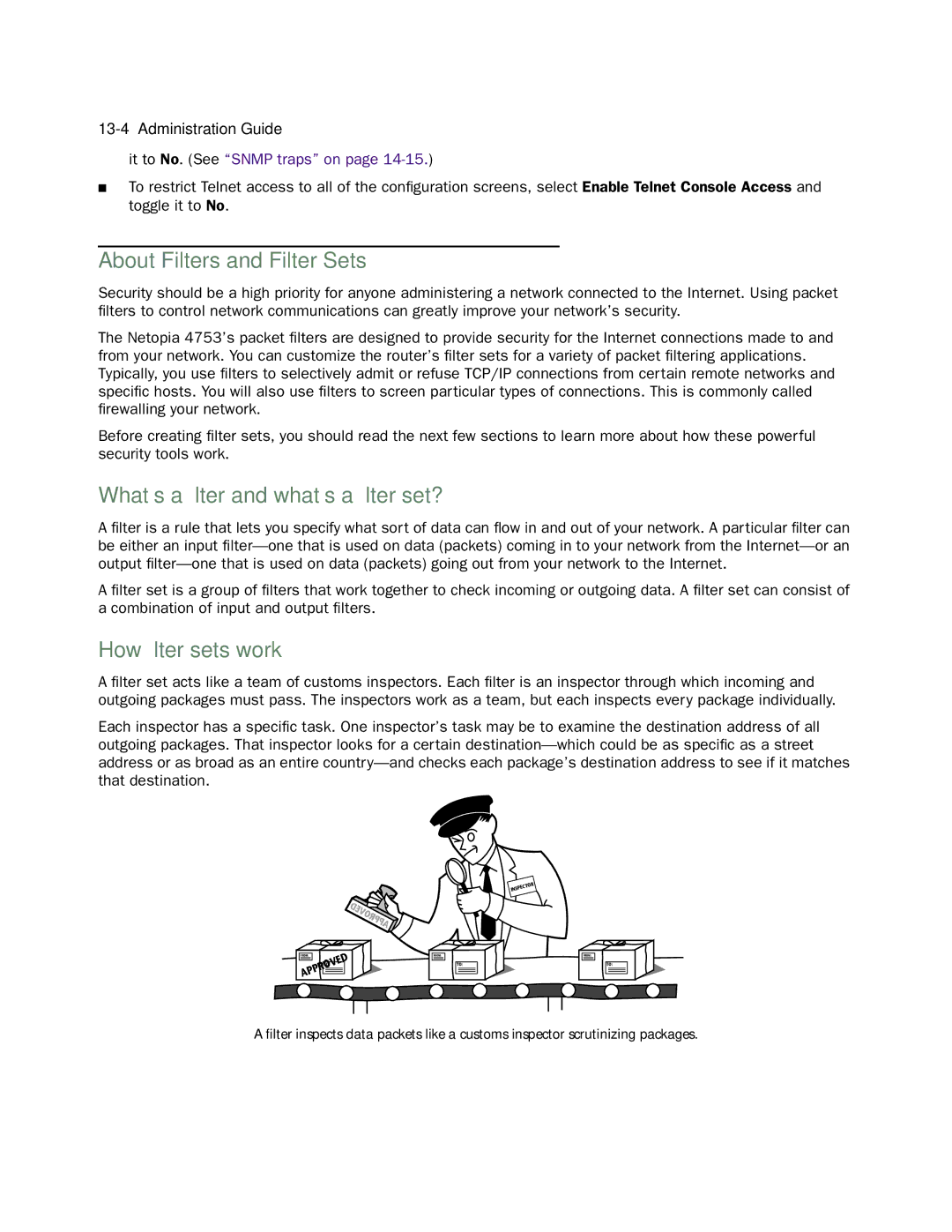
13-4 Administration Guide
it to No. (See “SNMP traps” on page 14-15.)
■To restrict Telnet access to all of the configuration screens, select Enable Telnet Console Access and toggle it to No.
About Filters and Filter Sets
Security should be a high priority for anyone administering a network connected to the Internet. Using packet filters to control network communications can greatly improve your network’s security.
The Netopia 4753’s packet filters are designed to provide security for the Internet connections made to and from your network. You can customize the router’s filter sets for a variety of packet filtering applications. Typically, you use filters to selectively admit or refuse TCP/IP connections from certain remote networks and specific hosts. You will also use filters to screen particular types of connections. This is commonly called firewalling your network.
Before creating filter sets, you should read the next few sections to learn more about how these powerful security tools work.
What’s a filter and what’s a filter set?
A filter is a rule that lets you specify what sort of data can flow in and out of your network. A particular filter can be either an input
A filter set is a group of filters that work together to check incoming or outgoing data. A filter set can consist of a combination of input and output filters.
How filter sets work
A filter set acts like a team of customs inspectors. Each filter is an inspector through which incoming and outgoing packages must pass. The inspectors work as a team, but each inspects every package individually.
Each inspector has a specific task. One inspector’s task may be to examine the destination address of all outgoing packages. That inspector looks for a certain
INSPECTOR
FROM:
APPROVET : D ![]()
FROM:
TO:
FROM:
TO:
A filter inspects data packets like a customs inspector scrutinizing packages.
